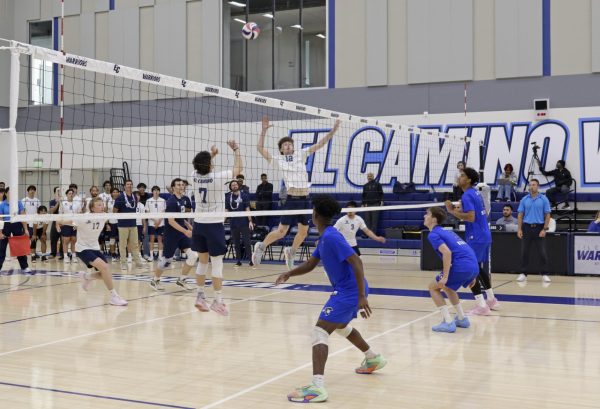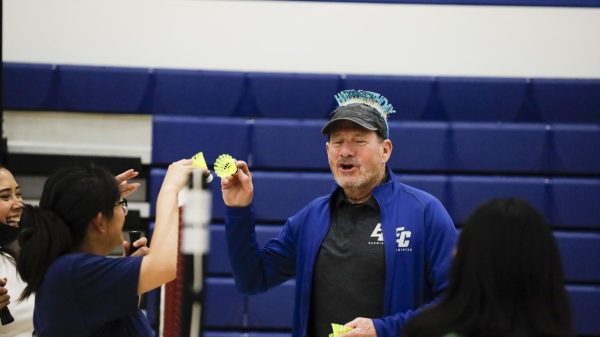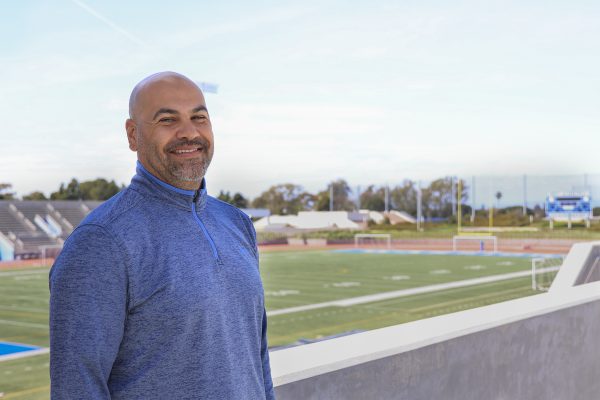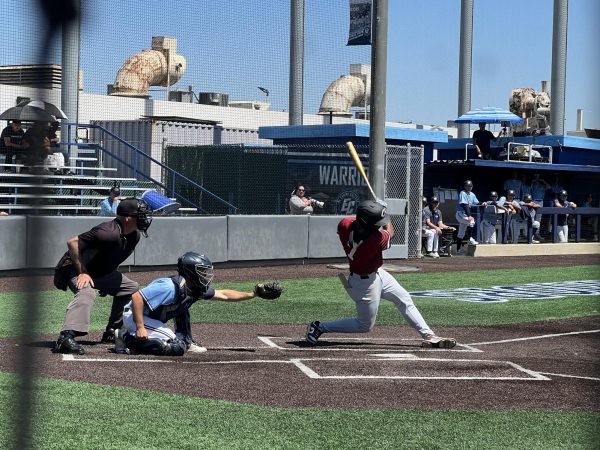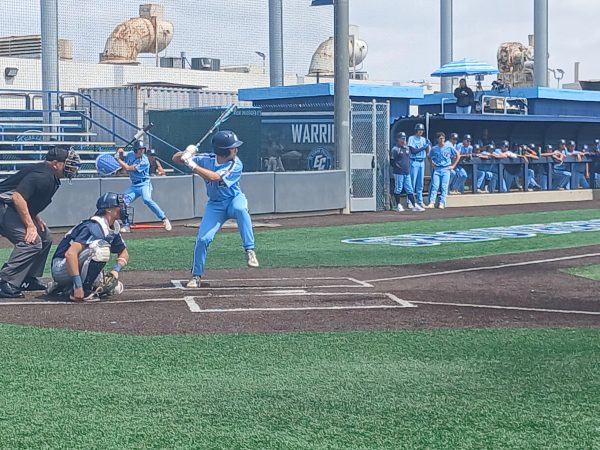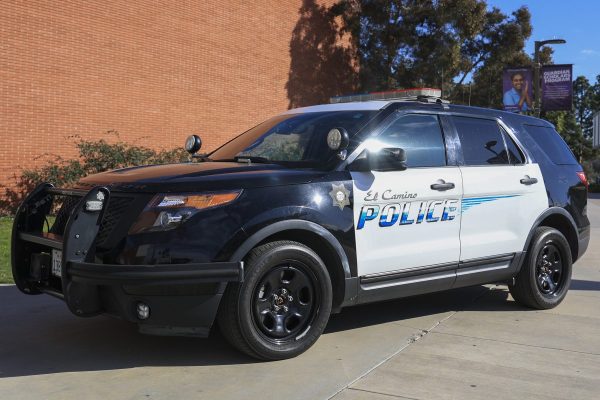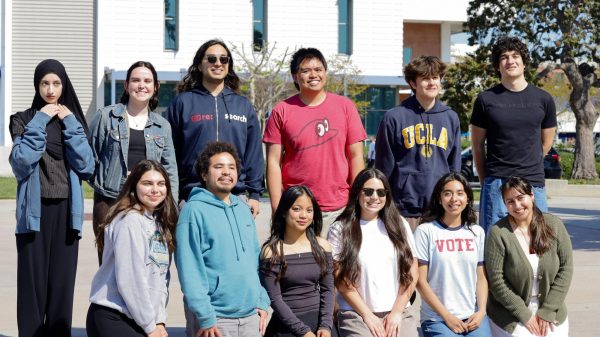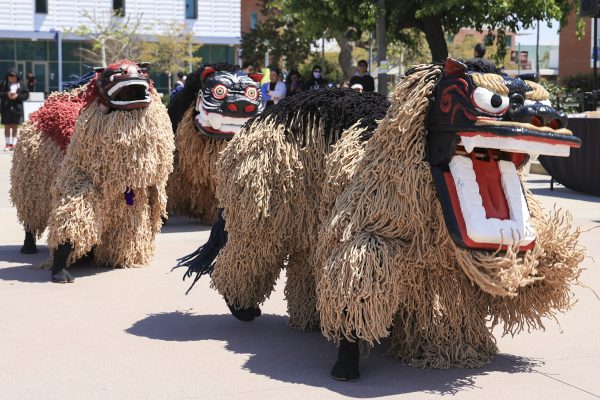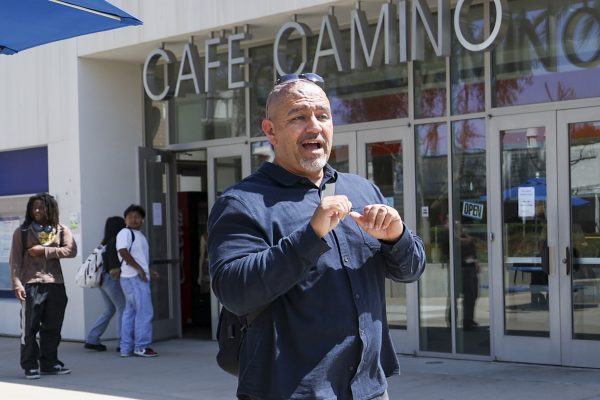Student-athletes consider their future after being granted extended eligibility
She was recording data for her laboratory report while a pair of green safety goggles dug into her forehead, the same pair worn by the other 20 some chemistry students around her racing to finish the lab on time.
It was a day similar to many others before it. Until it wasn’t.
Long-distance runner Carmen Hernandez felt her phone vibrate in her pocket. Sneaking a glance at it, she saw a message. It was from her coach. Her next meet was canceled because of COVID-19. No one told her the rest of the season would be canceled, but she could read the writing on the wall.
“I was like ‘Well if one is canceled and all these [other] races are being postponed, then they’re all probably gonna be canceled.'” Hernandez recalled.
A few weeks later, her suspicion was confirmed. While checking emails at home, she found a message forwarded to her by her coach.
“It just said ‘Dear coaches, the season is canceled’, like straight up,” Hernandez said. “It also said that they were going to discuss [player eligibility].”
Then on March 19, the California Community College Athletic Association (CCCAA) made an announcement from the state capital declaring that spring student-athletes will be able to have their lost season of eligibility restored.
This leaves important decisions for thousands of student-athletes to make. Some will have to stay in school for an additional year that they may not have planned on to use their extra season of eligibility.
Hernandez says everything will work out for her because she had already planned to stay at El Camino another year. In fact, the COVID-19 emergency may be a blessing in disguise.
“It gives me another year to improve and hopefully transfer with athletics,” she said. “It gives me a couple of months to gather myself together and change my mentality – for the better.”
She is confident she will return a better athlete, but for other ECC athletes, the future is a much murkier prospect.
Jumper and sprinter Samantha Ealy is unsure whether she will be back next year. This was to be her last year at ECC before transferring.
“The most important factors right now are really just making sure the schools I get accepted to have what I need,” Ealy said. “If they don’t really have what I need, I’ll come [back] to [ECC].”
Ealy is a criminal justice major but wants to specialize in forensics.
“The main challenge will be to find a college with a good track program and a good forensics program,” she said.
For relay runner Alec Froning, the decision to stay is simple. His goal is to earn a track scholarship to a school he will transfer to.
“If I want money, I’ll have to compete again next year,” he said.
Froning was in the best shape of his life before his season was canceled. Plagued by injury every season since his senior year of high school, he was now completely healthy. Losing his season was disappointing, but he knows it was for the best.
“It was upsetting for sure, but safety is number one,” Froning said. “[Not competing] is what we have to do.”
There is no doubt he and his team will be better next year, he said.
“Next year, we’re going to have 3 years of athletes instead of 2,” Froning said. “[A lot] of the sophomores are staying, so we’re all excited for that. Plus we’ll have an extra year of training.”
Jumper and sprinter Aaliyah Graves is torn between returning next year or transferring to a university.
“The whole plan I had for myself was to transfer after this semester but right now I’m deciding between staying another year at [El Camino] or just trying to walk on to a team at the university I choose,” Graves said.
Like countless other student-athletes, she is hoping to earn an athletic scholarship to help afford college.
“I needed this season to improve my marks and transfer on a scholarship,” Graves said. “It might have been selfish to think about it that way but that’s what I was planning on to help me get through and pay to attend a university.”


